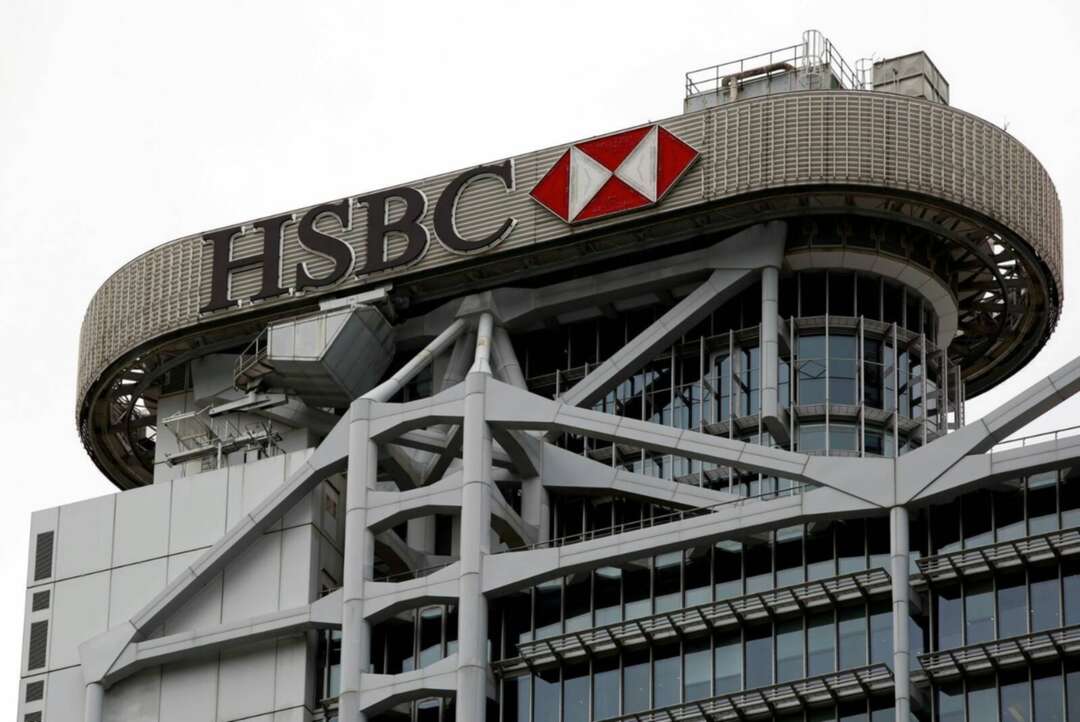-
HSBC withdraws from U.S. mass market retail banking by selling most of its US retail banking business

A logo of HSBC is seen on its headquarters at the financial Central district in Hong Kong, China August 4, 2020. REUTERS/Tyrone Siu
Alun John
HSBC (HSBA.L) announced it is withdrawing from U.S. mass market retail banking by selling some parts of the money-losing business and winding down others, a long-awaited move as the lender steps up a shift in focus to Asia, its biggest market.
Europe's biggest bank has for years been trying to shrink its presence in some European and North American markets where it has struggled against competition from larger domestic players.
The bank said in a statement late on Wednesday it would exit retail banking for most individual and small business customers but retain a small physical presence in the United States to serve its international affluent and very wealthy clients.
"They are good businesses, but we lacked the scale to compete," Noel Quinn, HSBC group CEO, said in the statement.
HSBC unveiled in February a revised strategy focused mainly on wealth management in Asia, and at the same time said it was “exploring organic and inorganic options” for its U.S. retail banking franchise.
As part of Quinn's gameplan that also involved slashing costs across the banking group, the London-headquartered bank has been looking to step back from sub-scale markets and businesses.
HSBC is also seeking to sell its French retail banking operations as part of the same strategy, and has entered final negotiations to sell that business to private equity firm Cerberus, Reuters reported in March.
Citizens Bank, part of Citizens Financial Group (CFG.N), has agreed to buy HSBC's east coast personal and small business banking business including 80 branches, and Cathay Bank, a unit of Cathay General Bancorp (CATY.O), has agreed to buy its west coast business including 10 branches, according to HSBC and separate statements from the two U.S.-headquartered banks.
"These transactions, whilst very small in the context of HSBC group, should contribute to streamlining the group," analysts at Jefferies wrote in a note on Thursday. They added, though, that the bank is expected to still face some investor pushback as it is not completely exiting U.S. retail.
HSBC said it expected to incur pre-tax costs of $100 million connected with the transactions, after which it does not expect to generate a significant gain or loss.
HSBC's U.S. wealth and personal banking business made a loss of $547 million in 2020, according to the bank's annual results, versus a $5 billion profit in Asia, primarily from Hong Kong, its most profitable market.
Its global banking and markets division, which includes its investment banking and large corporate businesses, made a profit of $573 million in the United States in 2020.
The bank's Hong Kong listed shares rose as much as 0.8% to a three-month high, before retreating.
U.S. TROUBLES
HSBC expanded into U.S. retail banking in the 1980s as part of a broader strategy to diversify its geographical focus.
However, it has been trying to walk back on this for more than a decade, and in 2011 announced the sale of nearly half of its then 470 U.S. branches, mostly in upstate New York, and also its profitable U.S. credit card arm.
HSBC had acquired that credit cards business as part of its disastrous $14 billion purchase of U.S. consumer lending firm Household International in 2003, which triggered billions of dollars of subprime mortgage losses, and an eventual $1.6 billion payment to settle a class-action lawsuit.
The bank currently has a U.S. network of 148 branches.
Reuters, May 27, 2021/11:41 AM EEST
Image Ownership Reuters
You May Also Like
Popular Posts
Caricature
BENEFIT Sponsors BuildHer...
- April 23, 2025
BENEFIT, the Kingdom’s innovator and leading company in Fintech and electronic financial transactions service, has sponsored the BuildHer CityHack 2025 Hackathon, a two-day event spearheaded by the College of Engineering and Technology at the Royal University for Women (RUW).
Aimed at secondary school students, the event brought together a distinguished group of academic professionals and technology experts to mentor and inspire young participants.
More than 100 high school students from across the Kingdom of Bahrain took part in the hackathon, which featured an intensive programme of training workshops and hands-on sessions. These activities were tailored to enhance participants’ critical thinking, collaborative problem-solving, and team-building capabilities, while also encouraging the development of practical and sustainable solutions to contemporary challenges using modern technological tools.
BENEFIT’s Chief Executive Mr. Abdulwahed AlJanahi, commented: “Our support for this educational hackathon reflects our long-term strategic vision to nurture the talents of emerging national youth and empower the next generation of accomplished female leaders in technology. By fostering creativity and innovation, we aim to contribute meaningfully to Bahrain’s comprehensive development goals and align with the aspirations outlined in the Kingdom’s Vision 2030—an ambition in which BENEFIT plays a central role.”
Professor Riyadh Yousif Hamzah, President of the Royal University for Women, commented: “This initiative reflects our commitment to advancing women in STEM fields. We're cultivating a generation of creative, solution-driven female leaders who will drive national development. Our partnership with BENEFIT exemplifies the powerful synergy between academia and private sector in supporting educational innovation.”
Hanan Abdulla Hasan, Senior Manager, PR & Communication at BENEFIT, said: “We are honoured to collaborate with RUW in supporting this remarkable technology-focused event. It highlights our commitment to social responsibility, and our ongoing efforts to enhance the digital and innovation capabilities of young Bahraini women and foster their ability to harness technological tools in the service of a smarter, more sustainable future.”
For his part, Dr. Humam ElAgha, Acting Dean of the College of Engineering and Technology at the University, said: “BuildHer CityHack 2025 embodies our hands-on approach to education. By tackling real-world problems through creative thinking and sustainable solutions, we're preparing women to thrive in the knowledge economy – a cornerstone of the University's vision.”
opinion
Report
ads
Newsletter
Subscribe to our mailing list to get the new updates!






















